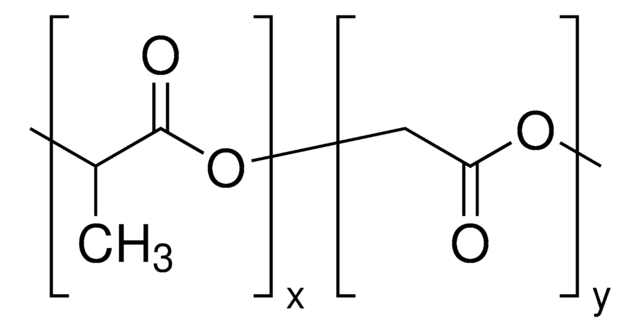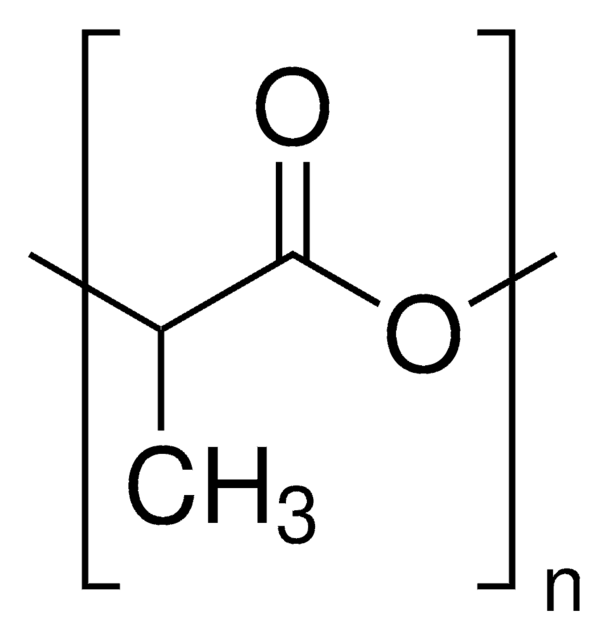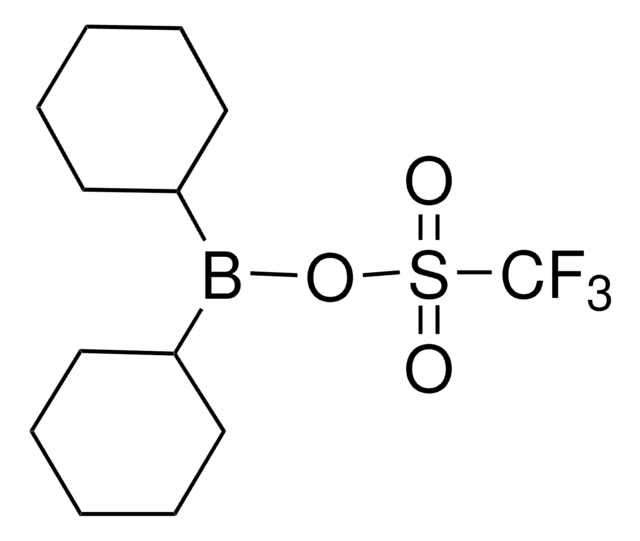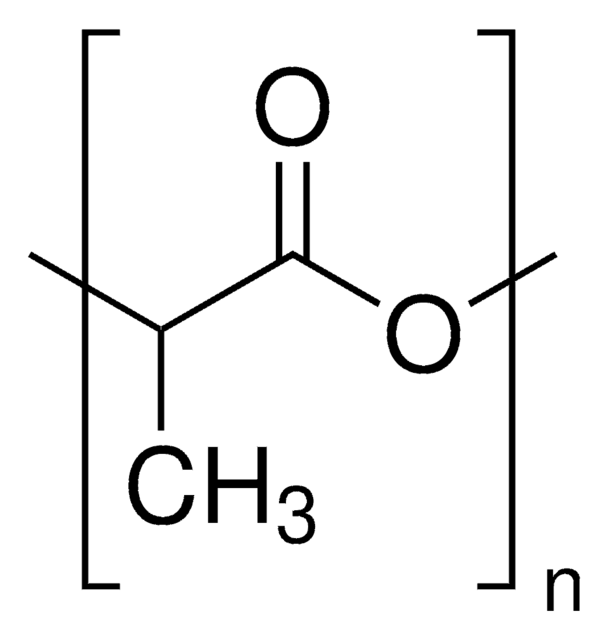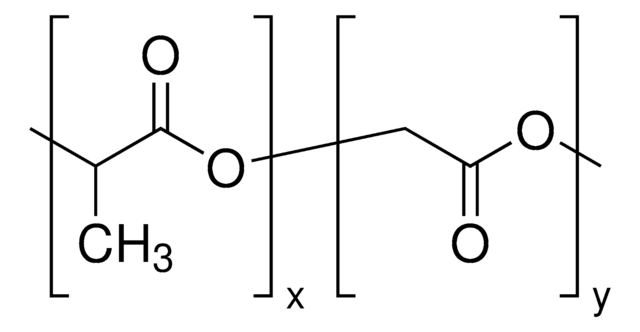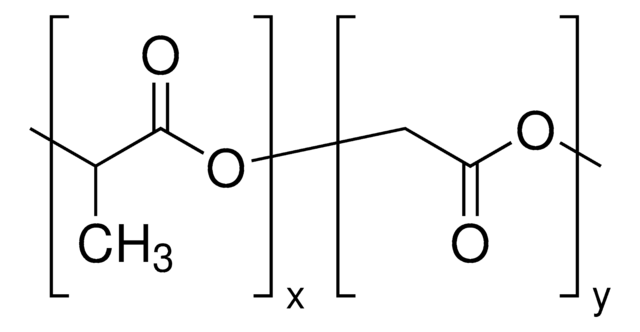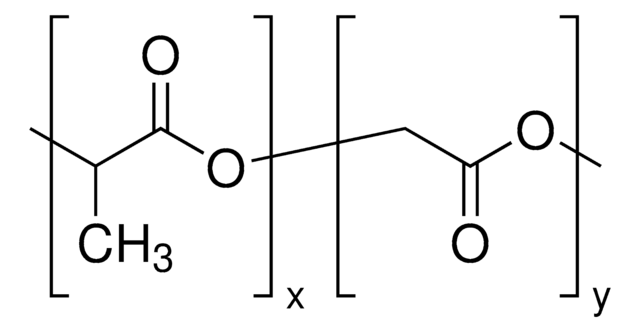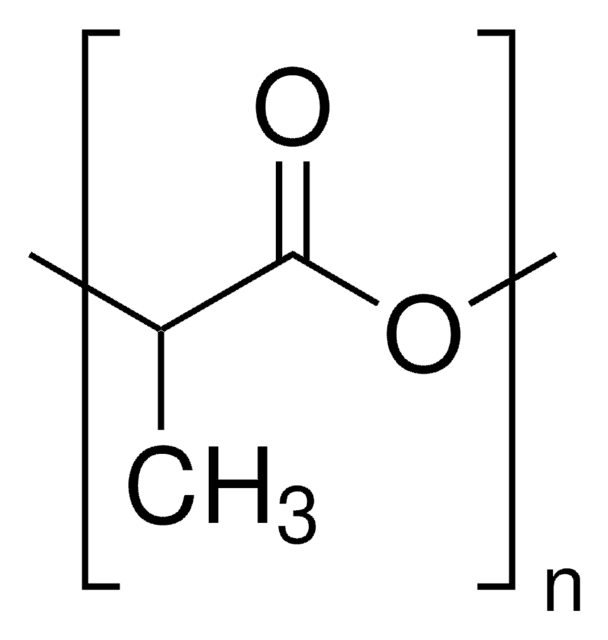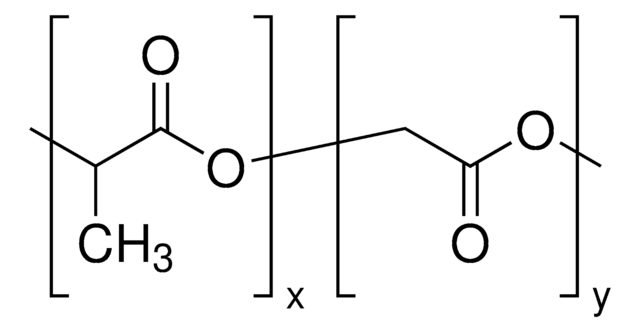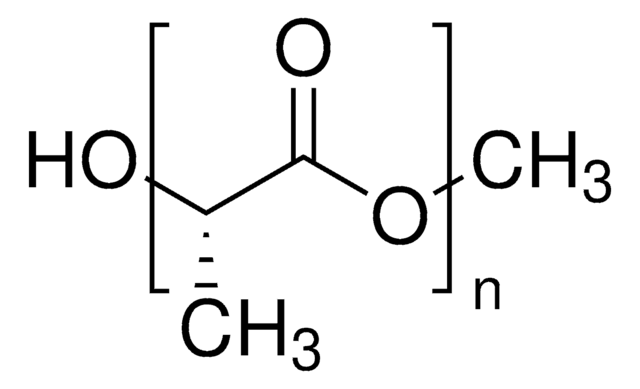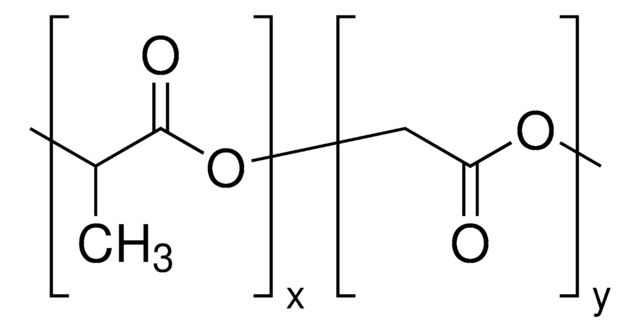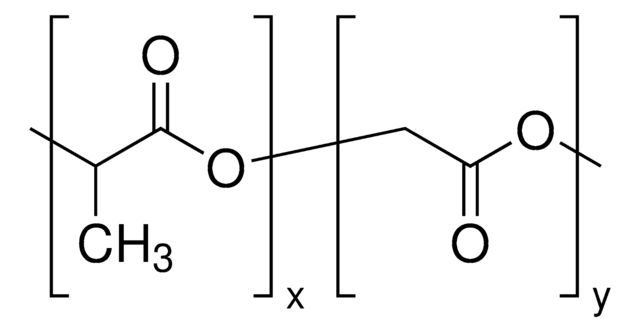719978
Poly-(D,L-lactid)
acid terminated, Mw 10,000-18,000
Synonym(e):
PDLLA, RESOMER® R 202 H
About This Item
Empfohlene Produkte
Qualitätsniveau
Form
amorphous
Mol-Gew.
Mw 10,000-18,000
Zeitrahmen für den Abbau
<6 months
Viskosität
0.16-0.24 dL/g, 0.5 % (w/v) in chloroform(25 °C, Ubbelohde) (size 0c glass capillary viscometer)
Übergangstemp.
Tg 44-48 °C
Lagertemp.
2-8°C
InChI
1S/C6H8O4/c1-3-5(7)10-4(2)6(8)9-3/h3-4H,1-2H3
InChIKey
JJTUDXZGHPGLLC-UHFFFAOYSA-N
Verwandte Kategorien
Anwendung
Rechtliche Hinweise
Ähnliches Produkt
Lagerklassenschlüssel
11 - Combustible Solids
WGK
nwg
Hier finden Sie alle aktuellen Versionen:
Besitzen Sie dieses Produkt bereits?
In der Dokumentenbibliothek finden Sie die Dokumentation zu den Produkten, die Sie kürzlich erworben haben.
Kunden haben sich ebenfalls angesehen
Artikel
Interest in utilizing biodegradable polymers for biomedical applications has grown since the 1960s.
Aliphatic polyesters such as polylactide, poly(lactide-co-glycolide) and polycaprolactone, as well as their copolymers, represent a diverse family of synthetic biodegradable polymers that have been widely explored for medical uses and are commercially available.
Aliphatic polyesters such as polylactide, poly(lactide-co-glycolide) and polycaprolactone, as well as their copolymers, represent a diverse family of synthetic biodegradable polymers that have been widely explored for medical uses and are commercially available.
Innovations in polymer technology have had a significant impact on the advancement of novel drug delivery systems.
Unser Team von Wissenschaftlern verfügt über Erfahrung in allen Forschungsbereichen einschließlich Life Science, Materialwissenschaften, chemischer Synthese, Chromatographie, Analytik und vielen mehr..
Setzen Sie sich mit dem technischen Dienst in Verbindung.